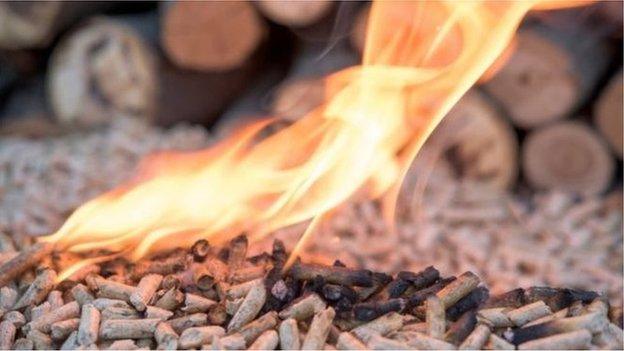RHI inquiry: Civil servants 'want to spread the blame'
- Published
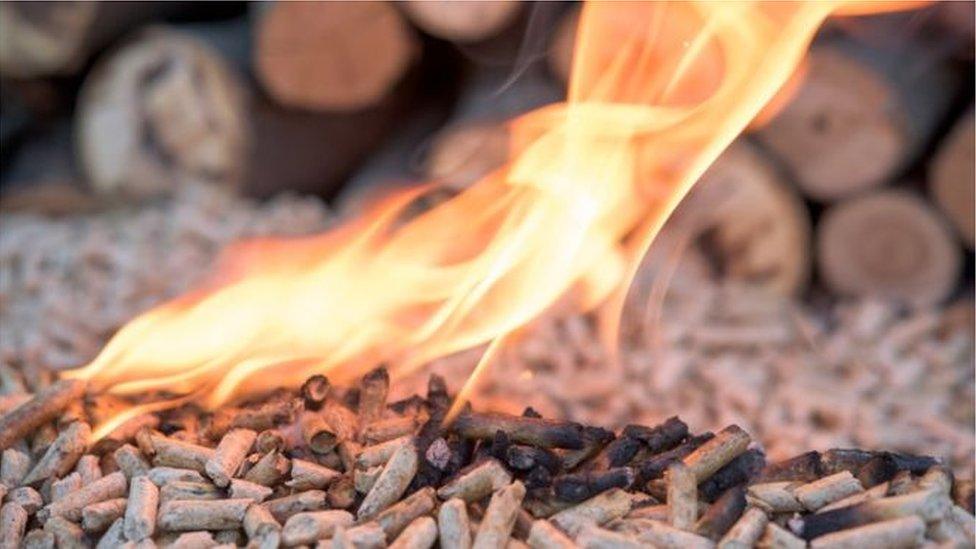
The RHI scheme subsidised the cost of fuel to encourage the use of renewable heating systems
A biomass businessman has claimed civil servants want to spread the blame for the Renewable Heat Incentive (RHI) scheme so that it does not all fall on them.
Brian Hood's engineering companies sold and installed biomass heating systems.
An inquiry is investigating the scheme, after its costs spiralled.
Mr Hood rejected a Department for the Economy claim that there was a "conspiracy of silence" in the biomass industry about the flaws in the scheme.
Inquiry counsel, David Scoffield QC, said the department seemed to be saying "we didn't know and they made sure they didn't tell us".
But Mr Hood said that was untrue.
"At the end of the day, if the department don't find other people to blame, then all the blame is going to land on officials that got it wrong," he said.
"So they want to spread the net out and spread the blame to everybody as much as they can. That's my opinion."
Promotional leaflets
Mr Hood also told the inquiry it took him just days to work out how substantial subsidies could be earned from the scheme.
He said as soon as the scheme was launched in 2012, his companies worked out how it could repay investors.
Mr Hood produced hundreds of promotional leaflets.
They included the information that every £1,000 fuel spend would result in an RHI income of £1,475.
Mr Hood said that for large companies, it also meant a saving on a "carbon footprint tax" they were liable for.
Instead of paying it, they could offset it against their biomass usage.
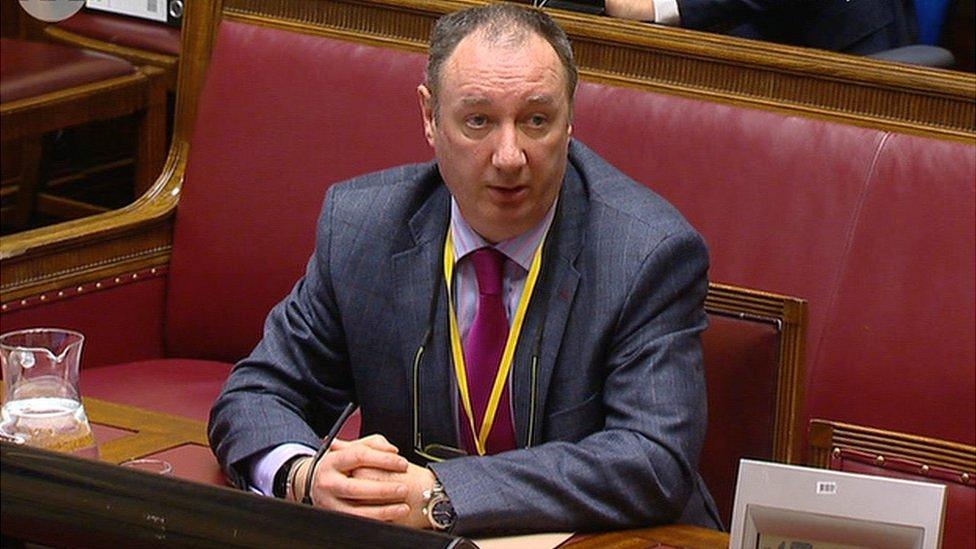
Brian Hood's company ran a social media campaign promoting "20 years of free heat"
The inquiry has heard that officials in the government department bringing in the scheme did not spot that the subsidy was much higher than the fuel cost until it was too late.
The flaw led to a huge projected overspend.
'Every man and his dog'
Mr Hood was asked whether anyone had raised the issue that RHI payments came out of public money.
He said he understood it was part of a government drive to avoid EU fines and assumed officials had done the proper sums.
"As far as we were concerned, they'd brought in independent consultants and, to use a phrase, every man and his dog had had a look at it," he said.
"They'd set the tariff, they'd done their due diligence. Who are we as a mere firm to question the government? They got it right as far as I was concerned."
Mr Hood said his company ran a long-standing social media campaign promoting "20 years of free heat".
He told the inquiry he had also had some of his vehicles branded with the slogan.
The inquiry heard how Mr Hood's companies lobbied executive ministers to encourage them to use RHI boilers in government buildings.
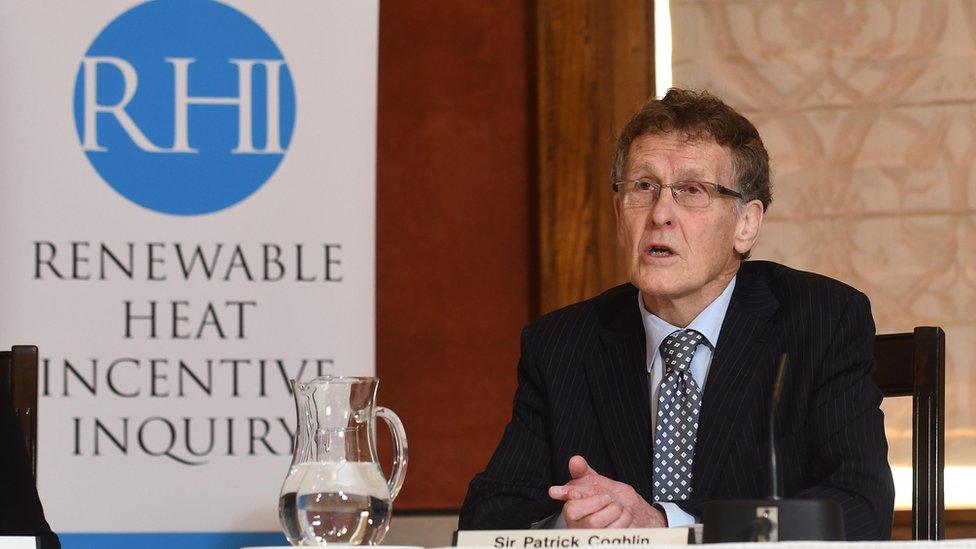
The inquiry is being chaired by Sir Patrick Coghlin
Both the then justice minister David Ford and finance minister Sammy Wilson were encouraged to consider it.
The approach was made by Mr Hood's companies, Sheridan Hood and BS Holdings, based in Belfast.
Mr Hood said they had suggested that multiple boilers be used in a proposed police and fire training college near Cookstown, saying it could have saved £3m over a 20-year period, but the suggestion was not taken up.
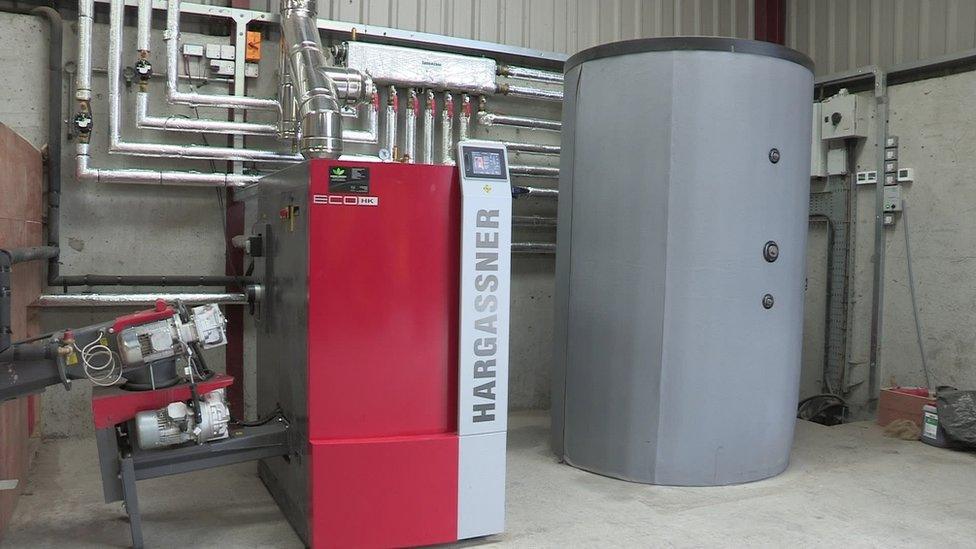
Overly-generous subsidies meant the costs of the scheme spiralled out of control
Justice officials suggested that it might be interpreted as an attempt to exploit "loopholes" in the RHI scheme and it might not be something the department wished to pursue.
Mr Hood said he was aware that the regulations were open to abuse.
He said his clients were reputable businesses who were sticking to the spirit and the letter of the law.
'Open the windows'
But he added: "Technically, you could open the windows and don't turn the heating off. The regulations didn't cater for that."
David Scoffield, QC to the inquiry, asked whether he had ever raised his abuse concerns with officials.
He said he had not.
"We didn't write the regulations, we only implemented them," he said.
Later, the head of another biomass installation company said it was common knowledge in the industry that the scheme was lucrative.
Neil Elliott ran a company called Future Renewables Ltd, based in Fermanagh.
He said there been an explosion of installers to cope with demand as RHI took off.
'Feeding frenzy'
He said at some Department of Agriculture promotional events, organisers had to get an additional marquee to fit in all the extra installers.
Asked whether there was a conspiracy of silence in the industry, Mr Elliott countered "not unless you were blind and deaf".
He said he had attended almost 60 events run by the department to promote the scheme to farmers.
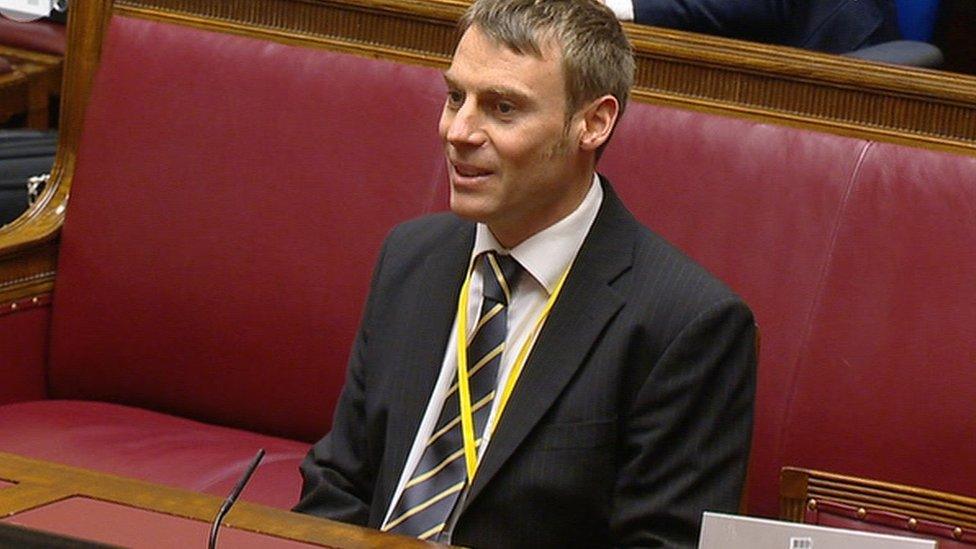
Neil Elliott said his workforce increased tenfold to deal with RHI demand
Mr Elliott described the rush to get into the scheme before it closed for good in February 2016.
He said it as a "feeding frenzy" that took him from doing one installation a week to doing 50.
He said he had never experienced anything like it.
Mr Elliott said one client had been prepared to air freight a boiler from Europe rather than transport it by road in order to beat the deadline.
When he got word that the scheme was to close imminently, he had £200,000 worth of boilers ready for delivery from Austria.
Had it shut before they arrived, they would have never been installed.
A two-week extension to the scheme was agreed that gave him some breathing space, he said.
His workforce increased tenfold to deal with RHI demand.
When it closed, work had "gone dead" and he had to lay the extra staff off.
- Published7 December 2017
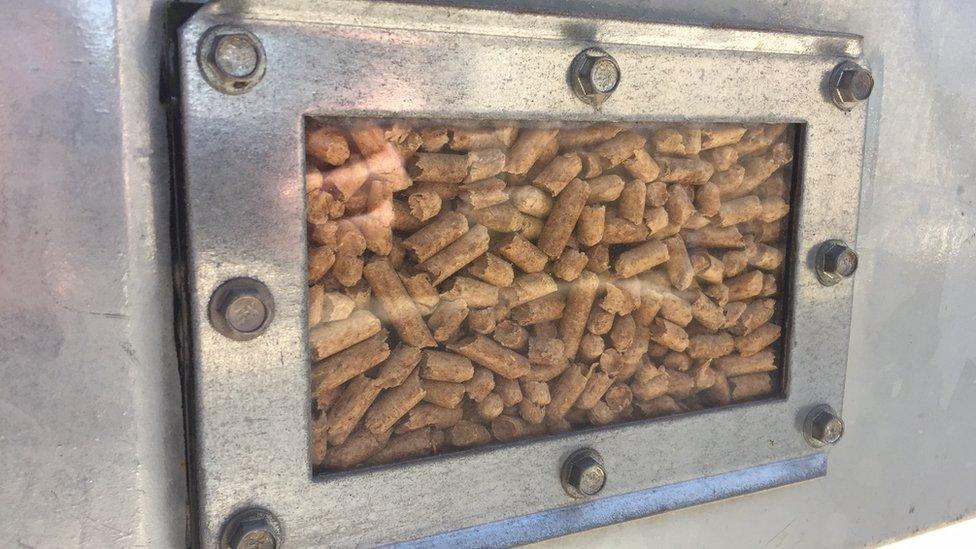
- Published30 January 2018
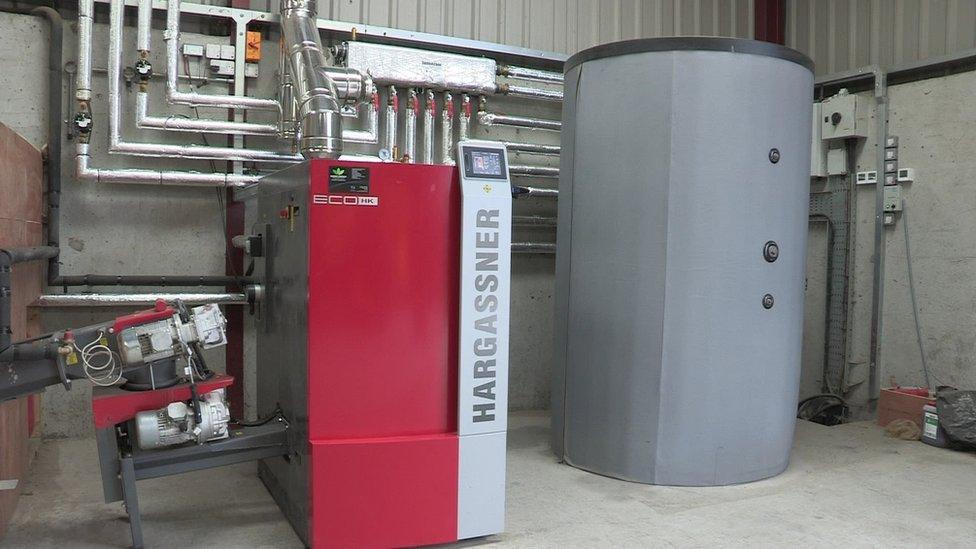
- Published17 January 2017
